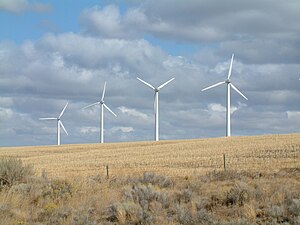"You do not talk smack to an Iowan."
That might be a catch-phrase before too long, especially in this age of lightning-fast viral media.
So here's a little story that has all kinds of happy endings, no matter where you happen to be. It begins as a sports story, morphs into a human-interest story with a touch of beauty pageant thrown in, and ends up being one big laugh.
Act One: the Sports Story
The Washington Nationals baseball team have had few bright spots this season. (Their won-loss record isn't the worst in the National League — that would be the Pittsburgh Pirates — but the Nationals aren't winning a whole lot this year.) One of those bright spots has been the arrival of pitcher Stephen Strasburg, who burst onto the scene a few months ago with several devastating performances in a row. Strasburg routinely throws 100 mph (which is in itself somewhat of an uncommon feat), he has great command of his pitches, and he isn't afraid of pressure or crowds. Trouble was, he was hurt.
So 40,000 people go along to see the Nationals play the Philadelphia Phillies and to see Strasburg pitch for the Nationals. But Strasburg was hurt and had to be pulled from the lineup at the last minute. So when the announcer said the name of the Nationals starting pitcher and it was Miguel Batista, the fans made their displeasure known with a showering of boos. Batista, a journeyman reliever pressed into a starting role, tried to make light of the boos by saying the equivalent of "The reaction doesn't bother me." He said, however, a lot more.
After the game, Batista had this to say: "Imagine if you are there to see Miss Universe and you end up having Miss Iowa — you might get those kind of boos."
Well, the game was being shown live on ESPN and broadcast across the country, which is how a friend of the reigning Miss Iowa saw the pitcher say the thing and how the friend called Miss Iowa while she (not the friend but Miss Iowa) was getting her hair done. This being the digital age, the call was actually a text message, but the friend was incensed. So, it turns out, was Miss Iowa, Katherine Connors.
Act Two: the Beauty PageantThrough a series of events that could have been possibly only in the 24/7 wall-to-wall media culture in which we now live, Connors made it known to the Nationals that she was not amused at being unfavorably compared to Miss Universe. The baseball team, fearing bad publicity when the team already had a losing record, decided to do all it could to make everyone forget about the relief pitcher's ill-timed, poorly worded remark.

So the Batista called the Beauty, personally apologizing over the phone and also sending her flowers. Connors was admittedly touched by the gesture. She was also touched by the team's offer of throwing out the first pitch at a Nationals game. She accepted and brought her sash with her, wearing it over a baseball uniform while doing the first-pitch honors. And Connors, who had never played organized baseball, made a credible show of throwing the ball over the plate, which is something that some recent presidents haven't mastered. And who should be the catcher behind the plate for Miss Iowa's famous first pitch but Batista, the journeyman pitcher whose big mouth uttered the remark that touched off the minor furor in the first place.
Act Three: the Big Laugh
Now fast friends, Batista posed for pictures with Connors, who was sporting a special Miss Iowa baseball jersey. The two shared a few laughs and a few photographs and then went their merry ways. Their association isn't at an end, though. Seems that the Miss Iowa pageant has invited Batista to be a judge. Whether he accepts remains to be seen.
What also remains to be seen is what he wears. As a parting show, Connors had this to say: "I told him I can throw a pitch or two. The question is, can he walk in my bikini in high heels."
 I wonder if similar stories have been told in the past few years in houses in and around Plant City, Fla., about the feats of one Chelsea Baker, the only girl on the Brandon Farms Little League baseball team and indeed the only girl in the league.
I wonder if similar stories have been told in the past few years in houses in and around Plant City, Fla., about the feats of one Chelsea Baker, the only girl on the Brandon Farms Little League baseball team and indeed the only girl in the league. Seems Chelsea is also a bit handy with the bat. She's the owner of two grand slams.
Seems Chelsea is also a bit handy with the bat. She's the owner of two grand slams. Check out this video to see a wonderful feature on Chelsea, including some slow-motion shots of her picture-perfect pitch delivery.
Check out this video to see a wonderful feature on Chelsea, including some slow-motion shots of her picture-perfect pitch delivery.







